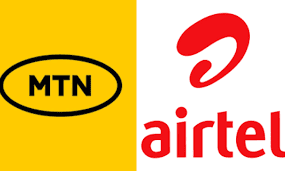Elon Musk’s Starlink has rapidly climbed the ranks in Kenya’s internet market, becoming the country’s seventh-largest internet service provider (ISP). Within just six months of entering the top ten, it has surpassed long-established competitors like Dimension Data and Liquid Telecommunications Kenya.
According to data from the Communications Authority of Kenya (CA), Starlink now serves 19,146 users—up from 16,786 just three months prior—claiming a 1.1% share of Kenya’s internet market. While it remains far behind dominant players like Safaricom and Jamii Telecommunications, its rapid growth signals an increasing demand for satellite broadband, particularly in regions where fibre and fixed wireless networks fall short. Notably, other satellite providers in Kenya, including Viasat, Indigo Telecom, and NTvsat, collectively serve only 257 users, further underscoring Starlink’s dominance in this niche.
However, Starlink’s expansion has not gone unnoticed by regulators. Local ISPs, including Safaricom and Airtel Kenya, have raised concerns that its aggressive growth could disrupt competition. In response, the CA is considering raising satellite licence fees from $12,302 to $115,331 and imposing a 0.4% levy on annual revenue—measures that could slow Starlink’s momentum.
Despite regulatory challenges, Starlink is doubling down on its efforts to capture more market share. In December 2024, the company launched a ground station in Nairobi, significantly reducing latency from 120 milliseconds to just 26 milliseconds. Additionally, it introduced a series of competitive offers, including a temporary price cut on installation kits, a $10 plan offering 50GB of data, and hardware rental options. Looking ahead, Starlink aims to roll out satellite technology that allows direct connectivity to mobile devices, eliminating the need for hardware kits and intensifying competition with traditional telecom providers.
While its market share remains small compared to Safaricom’s 36.1% and Jamii Telecommunications’ 23.6%, Starlink’s rapid ascent suggests it is poised to reshape Kenya’s internet landscape. To truly challenge the country’s top ISPs, however, it must continue expanding its reach, improving affordability, and navigating regulatory hurdles.







3 replies on “Starlink Becomes Kenya’s Seventh-Largest Internet Provider”
[…] Elon Musk’s Starlink has climbed to become Kenya’s seventh-largest internet service provider within just six months of joining the market. With 19,146 users, Starlink’s rapid growth highlights the rising demand for satellite broadband in regions underserved by fibre networks. […]
[…] Web Services (AWS) has launched its first cloud computing training at the University of Nairobi in Kenya. The program started with a three-day training at the University of Nairobi (UoN), where 125 first- […]
[…] Musk’s satellite internet venture, Starlink, has made its official debut in Jordan, introducing its high-speed, low-latency service to the […]